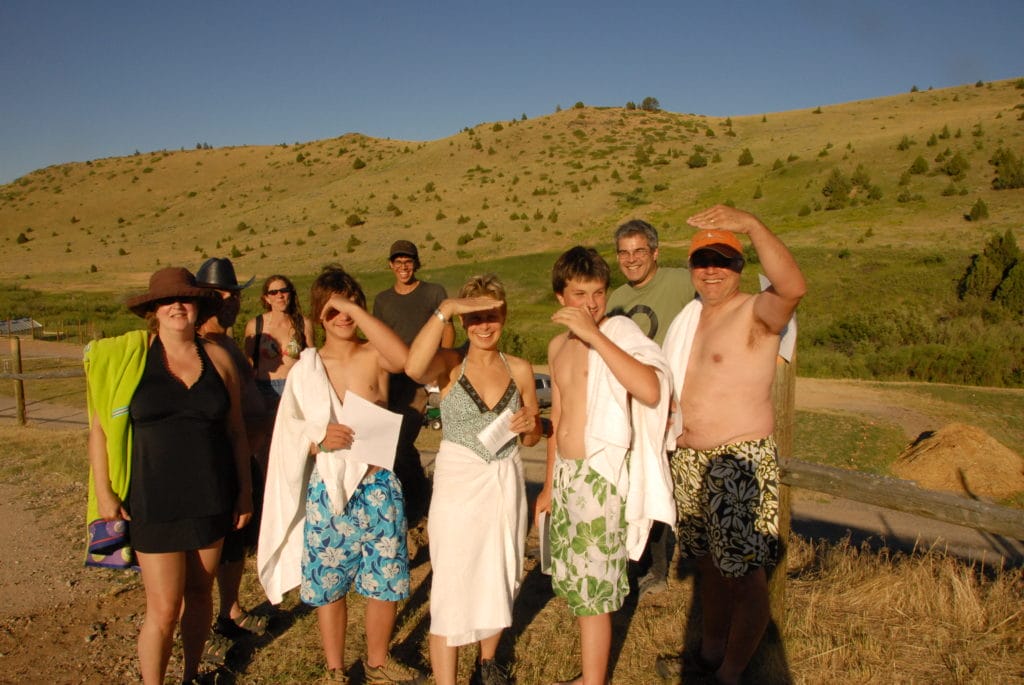Overview
The Urushiol were famous for their wedding ceremonies. Thought they were nomadic, like all milestones in Urushiolic cultural life, wedding ceremonies needed to take place had to place at a hot springs. On the wedding night the bride and groom would lower themselves into the Hot Springs and the mother-in-laws would spread Gallataan–an extract of form of poison oak far more extreme than known in our linear world– on the surface of the water and the happy couple would slowly rise through it, letting it coat their bodies. As much as anything else, this truly intimidated their enemies. After all, if this was the wedding night, what were these people like in battle? The answer was: quite fierce indeed.
Access
It is just east of the town of Norris at the entrance to Water of the Gods (Norris Hot Springs).
Specifically, it is a quarter mile east of Highway 287, on Highway 84 at Norris, Montana.
Plaque is easily accessible at the western entrance to the driveway down into the Hot Springs area. No need to enter the Hot Springs grounds when it is closed; you can easily see the plaque just on the other side of the fence.
As always, please be respectful of the local community.
Public Dedication
Plaque was dedicated at around 6:30 PM at the Norris Hot Springs in linear Montana.
Here are some of the folks who kindly extricated themselves from the amazing waters of the hot spring to sing “Kymaerica, Sambamba Dier.”

Text of the Marker
The part of the story installed here:
The Way of the Urushiol
For the nomadic Urushiol, thermal springs like these were essential venues for life’s passages, their locations and nuances committed to shamanic memory. In fact, the wedding festival of a warlord such as Urus Gresh would make Sopa Nurrus [Water of the Gods] the center of a temporary city, blanketing these hills with countless impatient Sabertooth, Woolly Rhinoceros and other partially-domesticated beasts. Known for their elaborate body scarification rendered with urushiol—an extract of gallaatan (a kind of supertoxic poison oak), even their formidable marriage rites inspired a morbid dread in their enemies.
The Urushiol spoke the language popularly known as False Cognate, a complex and confusing tongue that may have contributed to their (and their allies’) decisive defeat at the generation-searing Battle of the Platte. Soon after, the Urushiol melted away into the most rugged mountains of sMontana [the “s” is silent], inaccessible canyons where only the occasional Sabertooth sighting serves notice of this history.






